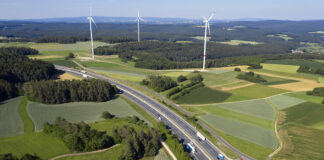The Mayor of London, Sadiq Khan, has announced plans for London’s biggest ever Car Free Day on Sunday 22 September 2019.
More than 20km of streets will be closed to cars in Central London – the equivalent of nearly 200 football pitches in length – including Tower Bridge (closed to all traffic), London Bridge (buses only) and much of the City of London. Eighteen boroughs are also organising events including working with residents to create local ‘Play Streets’ – safe spaces where children can play and communities get together.
“London is leading the way in innovative measures to improve air pollution and I want this year’s Car Free Day events to be the best of any world city,” said Sadiq Khan. “This will be a great opportunity for us all to leave our cars behind and explore our streets by foot, or by bike. We’ve called our range of events ‘Reimagine’ so that Londoners get an idea of what some of the busiest parts of our city would be like without cars and traffic.”
Car Free Day is marked across the world and the Mayor hopes over 150,000 Londoners will join in London’s Reimagine events, which will help encourage the change in behavior needed to meet the Mayor’s target of 80 percent of all journeys to be taken via sustainable modes of transport by 2041, compared to 63 percent today.
At least 18 boroughs have confirmed they will be participating in Car Free Day. Boroughs including Ealing, Brent, Greenwich, and Tower Hamlets are organising their own events, while others have pledged to support residents who would like to hold a Play Street on the day.
“We are delighted that the Mayor has put his support behind Car Free Day and is encouraging and empowering ordinary Londoners to bring their own streets alive with play,” said Fiona Sutherland, Deputy Director of London Play. “Car Free Day play streets will give people the opportunity to witness a transformation on their doorstep, when cars no longer dominate what we often forget is valuable public space. For a few hours, children, whose lives are most negatively affected by traffic, will take priority. We hope that it will be the beginning of long-term change.”



















